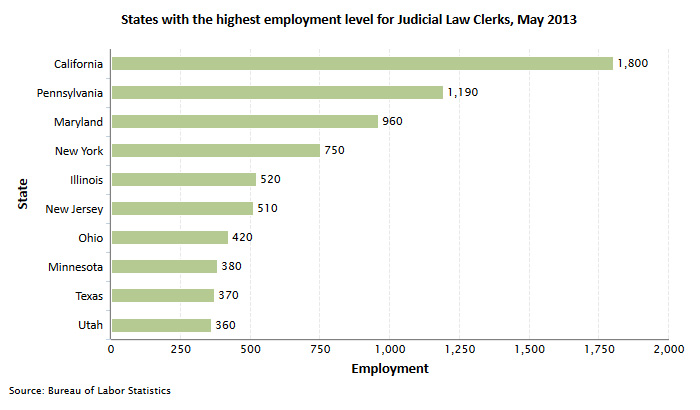Court Clerk
Court clerks perform administrative duties, process court and legal documents, notify individuals of trial dates, prepare various documents, and file records. They also examine court documents to check for accuracy and mistakes.Clerks check case folders before trials to ensure essential documents and records are enclosed. When documents are missing, clerks are responsible for requesting copies. They also retrieve files for lawyers and judges and prepare trial forms for judges.
Clerks record court minutes and administer oaths to people about to take the witness stand. Once trials end, clerks record issued fines, trial results, and witness testimonies. Additionally, court clerks collect fines and fees and document payments.
Clerks also file deeds, marriage licenses, mortgage titles, and other public documents.
Education and Training
Court clerks must hold a high school degree or GED at a minimum, but some courts only hire applicants who've completed 2 years of college. Courts typically prefer hiring individuals with bachelor's degrees, while federal courts usually only hire clerks with law or master's degrees. Additionally, court clerks must possess basic knowledge of word processing, bookkeeping, accounting, budgeting, and business management.Working Conditions
Court clerks typically work in court or office buildings. They stand and sit for hours each day copying documents, filing records, collecting fees, and completing administrative tasks. Court clerks usually work 40 hours per week. Work schedules for court clerks differ by state and court.
About
Privacy Policy
Contact Us
Submit a Resource
